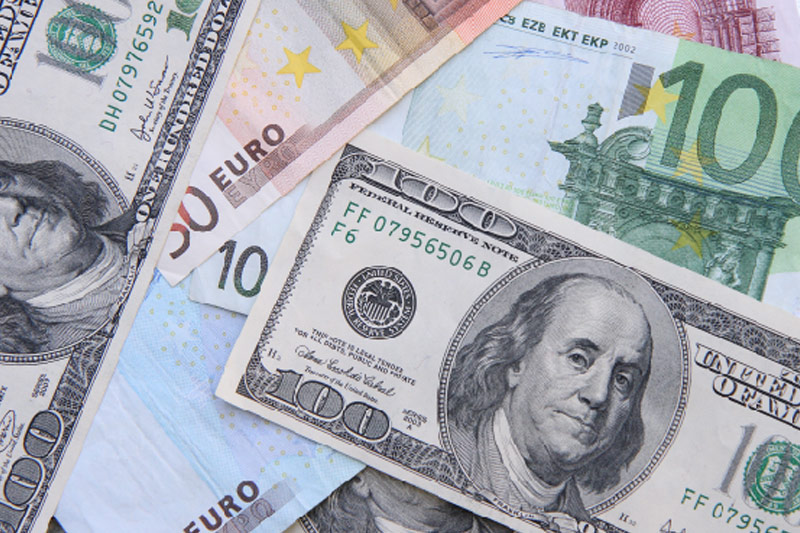Investing.com -- EUR/USD posted moderate gains on Tuesday to reach its highest level in more than three weeks, as currency traders continued to weigh whether the Federal Reserve could raise short-term interest rates at some point this year.
The currency pair traded in a tight range between 1.1344 and 1.1411 before settling at 1.1383, up 0.0024 or 0.20% on the session. At one point, the euro moved above 1.14 against the dollar for the first time since Sept. 18. EUR/USD has closed higher in three of the last four and six of the last nine sessions. Over the last month of trading, the euro is relatively flat against the dollar up by approximately 0.41% during that span.
EUR/USD likely gained support at 1.103, the low from Sept. 23 and was met with resistance at 1.146, the high from Sept. 18.
In a speech at the National Association for Business Economics annual conference on Tuesday morning, Federal Reserve Bank of St. Louis president James Bullard stood firm on his position that economic conditions nationwide are strong enough to allow the Federal Open Market Committee to approve an initial rate hike. While Bullard noted that liftoff is appropriate despite a litany of challenges, he emphasized that the challenges are not robust enough to guide policy decisions. In addition, Bullard argued that strict inflation targeting should not compel the Fed to hold rates at a zero-bound range, even if the U.S. central bank doesn't hit its 2% target in the near future.
Shortly after the FOMC voted to hold rates at its current near-zero level last month, Bullard asserted he would have voted against the decision in a scathing dissent.
Investors also continued to digest relatively hawkish comments from a host of central bankers over the weekend at the International Monetary Fund's Annual Meeting in Lima, urging the Fed to stop putting off an initial rate hike. Central bankers from two Emerging Markets in Asia believe a rate hike will reduce uncertainty in global foreign exchange markets, while Germany finance minister Jens Weidmann contends that a rate increase will lead to a stronger global economy. Days earlier, Weidmann told German newspaper Die Welt that conditions responsible for causing adverse effects to the global economy can intensify when "interest rates remain persistently low."
Foreign exchange traders await the release a steady stream of economic data later this week for further indications on the strength of the global economy. On Wednesday, a report from EuroStat is expected to show that industrial production in the euro zone declined by 0.5% for the month of August. It comes one month after industrial production rose by 0.6%, halting a three-month streak of losses. Inflation data will also be released on both continents toward the end of the week.
Yields on the U.S. 10-Year lost five basis points on Tuesday to end the session at 2.04%. U.S. bond markets were closed on Monday for the Columbus Day holiday.
The U.S. Dollar Index, which measures the strength of the greenback versus a basket of six other major currencies, ticked up 0.06% to close at 94.82. The index pared earlier losses, after slumping to a fresh three-week low earlier in the session at 94.58.
